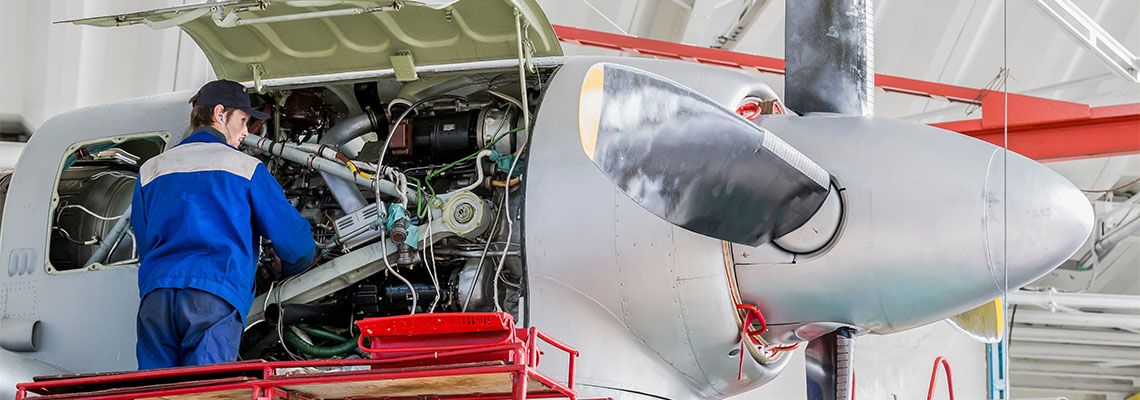Acquiring an aircraft for your business is a monumental step that can revolutionize your operations, improve efficiency, and even offer an edge in a competitive market. However, deciding whether to purchase or lease a plane is no small task.

aircraft LIens in Texas
When you're hired to perform a service, you expect to be paid. However, customers may sometimes fail to timely pay for services rendered or products sold. If you have made the mistake of releasing the aircraft without first getting paid, this can be a problem. As an aircraft mechanic or FBO in Texas, you have the right to file a lien on the aircraft if your customer delays or refuses to pay, allowing you to claim a legal interest in an aircraft as security for the services, storage and materials you supplied. this usually results in the service provider eventually getting paid.
William G. Harger & Associates, PLLC understands aviation law and the intricacies of filing and enforcing a lien against an aircraft in Texas. Located near Houston, Texas, his firm serves clients throughout Dallas, San Antonio, Austin, and the nation.
Brief Overview of Aircraft Liens
A lien is a legal claim or right against an asset(s) that is typically used as collateral to satisfy a debt. A lien ensures that the claimant has a legal right to take possession of the asset or to assert a claim over it until the debt is repaid or the services rendered are compensated.
In the context of aviation, there are several types of aircraft liens. For example, a lender files a lien on an aircraft when they provide purchase money to the aircraft buyer.
A more common lien is a standard "possessory" lien. This is a statutory lien provided by Texas Property Code Chapter 70 for anyone who provides maintenance, repairs (including parts), fuel or storage of an aircraft. The provider can legally maintain exclusive possession of the aircraft until the debt is paid. It is always recommended that service providers insist upon being paid in full for such services or products before releasing the aircraft back to the owner or operator.
But what about those situations where the owner or operator is allowed to take the aircraft while still owing the provider money for goods or services, then doesn't pay? The law on this varies from state to state, but If you are in Texas, you are in luck--but you must act promptly. Texas Property Code Chapter 70 gives an FBO the legal right to claim an interest in the aircraft as security for payment for maintenance and repairs, fuel sales and storage--but only for a period of 180 days. After that, the only option left is a lawsuit.
Texas Law on Aircraft Liens
Aircraft liens are addressed in Texas Property Code Chapter 70. A holder of a lien under this chapter may record the lien on the aircraft by filing with the Federal Aviation Administration Aircraft Registry not later than the 180th day after the date of the completion of the contractual storage period, sale of fuel or the performance of the last repair or maintenance a verified document that includes:
(1) the name, address, and telephone number of the holder of the lien;
(2) the amount due for storage, fuel, repairs, or maintenance;
(3) a description of the aircraft; and
(4) the name and address of the owner of the aircraft and the registration (N) number assigned the aircraft by the Federal Aviation Administration, if known.
This filing does not have to be in any special format, and the FAA does not provide a form for this purpose. The provider just needs to be sure the requirements above are met.
Normally attorney's fees and often contractual interest are added to the invoiced amount when the lien is filed.
Foreign Registered Aircraft
There is also a procedure provided by this statute for filing a lien on foreign registered aircraft, which happens in Texas with some frequency. In this situation, the lien is "perfected" by filing it with the Texas Secretary of State instead of the FAA.
Notice to Owner Within 60 Days if Provider Retains Possession of the Aircraft
If the provider wishes to file a lien on an aircraft even though the provider retains possession of it, the statute requires that he follow a specific notification procedure to the owner within 60 days of completion of the maintenance, storage or fuel sale.
So--What does the lien get you?
A lot! If you do nothing after filing the lien, nothing will happen (unless the owner pays you to release it) until the aircraft is sold. But then, you will be paid from the proceeds of the sale--or the owner will pay you prior to the sale to remove the cloud on the title.
If you were smart enough to retain possession of the aircraft, you can actually sell the aircraft at auction! Of course, very specific procedures must be followed (Texas Property Code 70.305), but it really isn't that hard. A prerequisite to selling the aircraft is that you must have filed the notice to the owner within 60 days of completion of the services. If you did that, and the debt has still not been paid 90 days after the completion of services, you can auction the plane, take what you are owed from the proceeds of the sale, and give whatever is left to the owner.
Common Challenges When Filing an Aircraft Lien in Texas
Filing an aircraft lien in Texas, while a powerful tool for securing payment, is not without its challenges. These obstacles can complicate the process and require careful navigation to ensure the lien is valid and enforceable. Here are some of the common challenges maintenance providers and FBOs may face:
Time limitations. The most common problem with aircraft liens is that providers wait too long to file them. There are 60, 90, and 180 day deadlines, and if not followed, the lien cannot be filed.
Disputed claims. Aircraft owners may dispute the quality of work, the amount owed, or the very existence of the debt. Such disputes can lead to legal challenges that may delay or prevent the enforcement of the lien. However, if the owner files a lawsuit on any of these issues and you win, you are entitled to reimbursement of your attorney's fees.
Failing to include all necessary information on the lien filing. It is easy to miss a detail on the filing requirements. For example, even though not required by the Texas Property Code, the FAA requires that the provider state on the lien filing the last date of services provided. If this is not included, the lien will not be "perfected" until the oversight is corrected.
Public record implications. Once filed, a mechanic's lien becomes a matter of public record. This can lead to unintended consequences, such as damaging the professional relationship between the provider and the aircraft owner, or impacting the owner's credit rating. At a minimum, the owner cannot sell the aircraft until the debt is paid, since the title company will require such payment in order to provide the buyer with a clear title.
By understanding and preparing for these issues, aircraft maintenance providers and FBOs can improve their chances of successfully filing and enforcing a lien on an aircraft for unpaid services. It is always advisable to consult with an experienced aviation attorney to be sure an aircraft lien is properly filed.
Filing a lien on an aircraft requires attention to detail and an understanding of both state and federal laws and protocols. However, when properly done, an aircraft lien provides a viable solution to secure compensation. Most of the time, simply filing the lien will get the owner to pay what is owed.
Attorney William G. Harger stands ready to assist clients with filing and enforcing mechanic's liens on aircraft, up to and including the sale of aircraft that have liens on them. If you need legal counsel or assistance with filing a lien, or selling such an aircraft, reach out to him at William G. Harger & Associates, PLLC. His knowledge of aviation law can help ensure you are justly compensated for your service
RECENT POSTS
Corporate aircraft are valuable assets that require meticulous care to operate safely, effectively, and in compliance with regulations. For aircraft owners, operators, and aviation businesses, it's not just about ensuring the aircraft remains airworthy but also about protecting the significant investments tied to these machines.
The aviation industry is a dynamic and complex sector, where businesses often collaborate to share resources, reduce costs, and expand their reach. One of the most effective ways to achieve these goals is through a joint venture. Whether it’s a partnership between airlines to streamline operations or a collaboration between manufacturers to develop cutting-edge aircraft technology, joint ventures play a pivotal role in shaping the industry.



